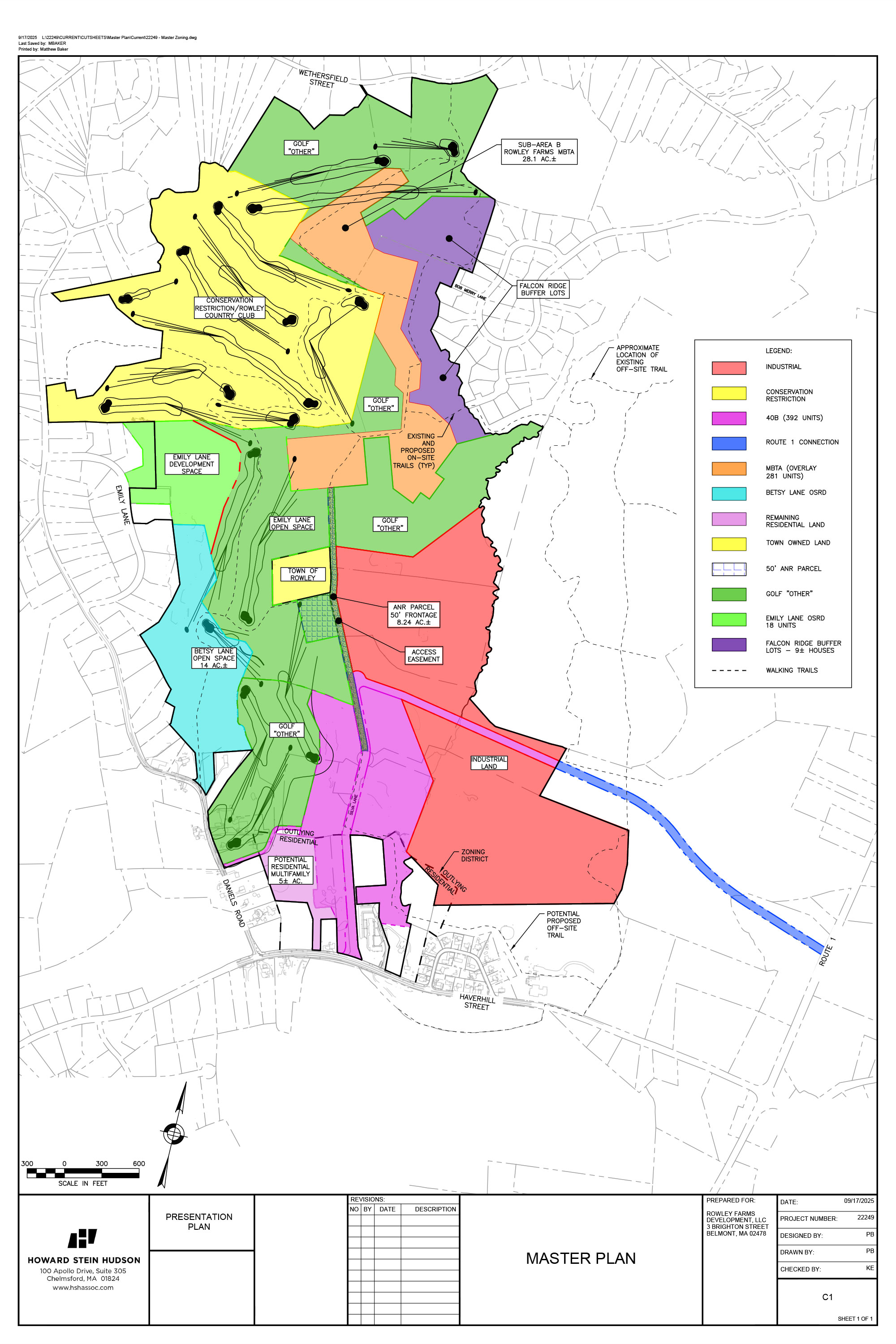Frequently Asked Questions
What is the master zoning plan for the project?

What is currently on the land slated to be developed?
Before the property was purchased by Rowley Farms in 2022, much of the area had been scarred by long forgotten businesses that left abandoned vehicles and leftover buildings from old mink farming and fish processing operations.
Rowley Farms is taking responsibility to clean up the property, including in the sensitive areas of the town’s Well Water Protection District.
Rowley Farms is taking responsibility to clean up the property, including in the sensitive areas of the town’s Well Water Protection District.
How is the community involved in the planning of the Rowley Farms project?
Come visit and talk to us! We hold frequent public informational sessions at the Club to hear the ideas and concerns of our neighbors and to answer questions. We know paramount concerns include increased traffic, strain on infrastructure, and protecting our natural resources, especially water. We will continue to welcome public input as this process continues.
What studies have been done to measure the impact on traffic and infrastructure, specifically water?
We have assembled a team of experts in mixed use communities, water treatment and usage, golf course design specifically known for their environmental work. Even before a shovel is put in the ground, our team has done exhaustive studies on traffic patterns, water flow, the topography of the land – scientific research now available to the town for use even beyond this project.Please visit our“Resource” section for more information.
How are you supporting local businesses?
We have an ongoing collaboration with Rowley's Anonymous Brewing. Our Back Nine Tavern is currently the only place you can find this local product. Additionally, our menu features wines from our neighbors at Mill River Winery. The restaurant serves dishes crafted with ingredients sourced from Herrick Farm. As the project progresses, we will continue to engage with local businesses.
What is the anticipated long term financial impact of the project?
In the coming years, we see a vibrant community with various housing options, abundant natural spaces, and recreational resources, alongside a world-class golf course open to all. These will be complemented by new opportunities for commercial and business growth that will create an infusion of tax dollars that can negate the need for overrides to fund schools and other vital town services. At full build-out, Rowley Farms could supplement tax revenues by 25 percent.
Explain what a Local Initiative Program (LIP), 40B development is?
Chapter 40B is a state statute that enables local Zoning Boards of Appeals to approve affordable housing developments under flexible rules if at least 20-25% of the units have long-term affordability restrictions. It was enacted in 1969 to help address the shortage of affordable housing statewide by reducing unnecessary barriers created by local approval processes, local zoning, and other restrictions.
Today, Rowley Farms is entering a new phase with a focus on a pivotal next step under the state’s Local Initiative Program (LIP), otherwise known as a Friendly 40B. This program encourages the creation of a variety of housing. Unlike the state’s 40B statute which does not require community buy-in, the LIP expects negotiation and compromise between the developer and the Town, ultimately fostering community support.
Today, Rowley Farms is entering a new phase with a focus on a pivotal next step under the state’s Local Initiative Program (LIP), otherwise known as a Friendly 40B. This program encourages the creation of a variety of housing. Unlike the state’s 40B statute which does not require community buy-in, the LIP expects negotiation and compromise between the developer and the Town, ultimately fostering community support.

Thank you! Your submission has been received!
Oops! Something went wrong while submitting the form.



